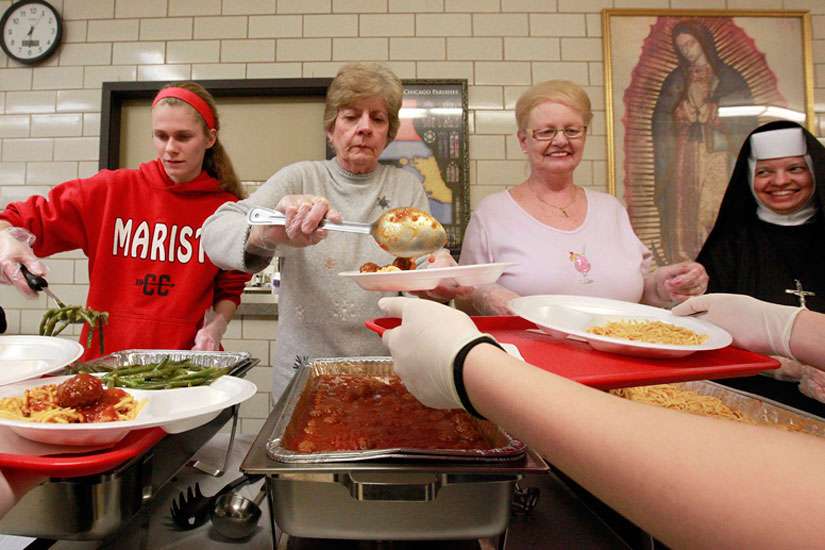The Out of the Cold program in Toronto recorded 12,325 overnight stays between the beginning of November last year and the end of March this year. When it’s all over, Out of the Cold organizers expect to add another 300 overnight stays in April.
Out of the Cold also served up 17,877 meals at the 17 Out of the Cold sites, according to Dixon Hall, the City of Toronto agency that co-ordinates and provides security for the program.
At the level of just one of the Out of the Cold sites, the St. Brigid’s Out of the Cold program at Danforth and Donlands hosted 1,319 overnight stays on Monday nights. The St. Brigid’s volunteers also served up 2,450 meals.
North of the city, the Mosaic Interfaith Out of the Cold organization reports it served 477 individual people over the course of the winter. That translates into 4,738 shelter visits and 2,694 overnight stays by 260 people.
The Markham, Thornhill and Richmond Hill program run in seven churches, two mosques and one synagogue served up 7,432 meals through the cold months.
This was the first winter that the suburban Out of the Cold operated seven nights per week.
Running Out of the Cold nights is not getting any easier, said Rehana Sumar, Mosaic Interfaith Out of the Cold executive director. The clientele is getting rougher and more unpredictable. There have been incidents with weapons.
“We’ve had to change our security relationships, which is unfortunate,” Sumar said.
People who fall into deep poverty and homelessness aren’t getting the help they need to step back into society, said Sumar.
The poor using the program have been poor for a long time.
“The longer people are out on the street subjected to poverty, the worse their mental health gets.”
A fragmented system of social supports that is difficult to navigate simply isn’t serving those worst off.
“The shelters, unfortunately, are the ones absorbing that pressure.”


